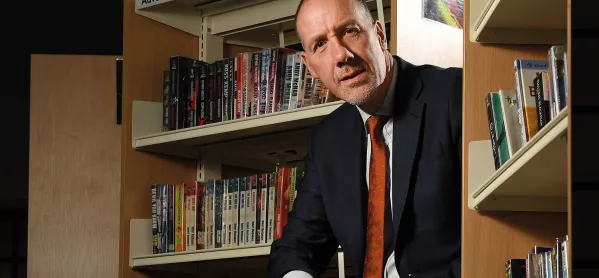A headteachers’ leader will warn today that the current GCSE system “rubs the noses of pupils in disappointment”.
Geoff Barton, general secretary of the Association of School and College Leaders (ASCL), will question why our exam system insists on almost 200,000 16-year-olds failing key qualifications.
He will say: “How can it be right that so many young people emerge without qualifications which are viewed as a passport to further study and future employment?
Quick read: Heads question English language GCSE
Quick read: Schools need £5.7bn more
Quick read: Hinds vows to fight for more money
“We do this in the name of rigour, apparently. But are we, in fact, judging the success of the majority by the perceived failure of the minority?”
His comments follow the publication of a report yesterday into the “forgotten third” of pupils who do not achieve a pass in GCSE English and maths.
GCSE resits: ‘The forgotten third’ of students
A commission set up by ASCL has questioned whether the current GCSE English language qualification is fit for purpose and whether it is right to force students to take repeated resits until they pass.
In a speech to 1,000 school and college leaders at ASCL’s annual conference in Birmingham today, Mr Barton will say: “What does it feel like on GCSE results day to go and collect your results when you have gained a grade 3 in English and maths? As soon as we deem a grade 4 a ‘standard pass’, and a grade 5 the more aspirational ‘strong pass’, where does that leave you with your grade 3?
“What are we, as a nation, saying to a young person who, after 12 years of being taught by teachers through early years, primary and secondary education, gets a grade 3 and then two years of mandatory resits? Why do we insist in rubbing their noses in disappointment?
“Last summer, there were nearly 190,000 children who didn’t achieve at least a grade 4 in English and maths. This year, because of the way our examination system works, determined not to allow accusations of grade inflation, there will be a similar number.”
Ofqual uses a system of “comparable outcomes” that aims to ensure a cohort’s exam results are in keeping with those pupils’ prior performance.
It aims to ensure that pupils are not penalised by changes to exams, and ensures that pass rates remain broadly stable year-on-year.
Mr Barton will also question whether too much pressure is being placed upon the GCSE system in general.
He will say: “That groundbreaking qualification designed for a different era, in which students then either left school or proceeded to college or the sixth form, is buckling under the weight of expectations.
“We use it to judge the child, the cohort, the teacher, the head and the school. And in the process of reform, we’ve ended up with a system in which the average 16-year-old is sitting more than 30 hours of exams. How can that possibly be necessary, given the GCSE should chiefly be there to help a young person make the right choice in post-16 progression?”




